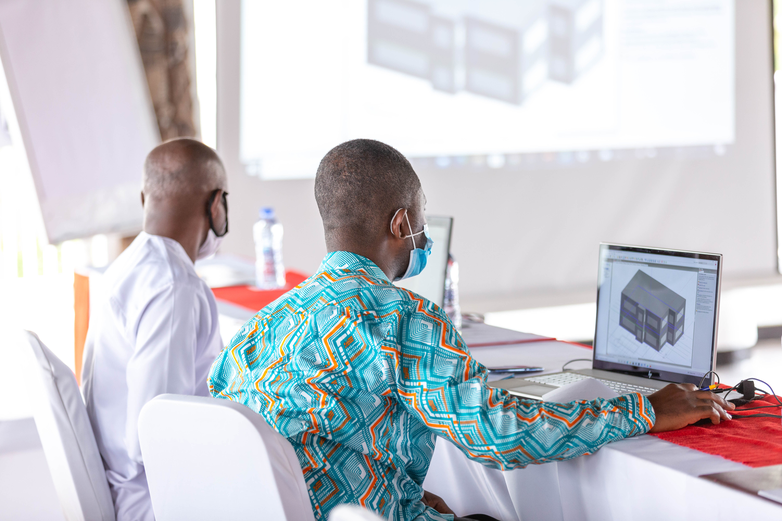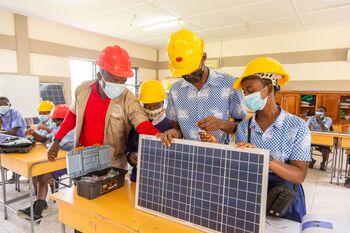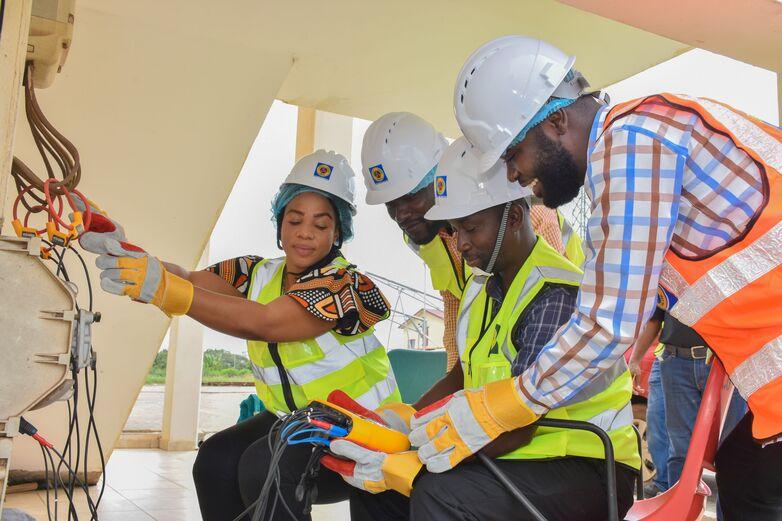Context
Oil, coal and gas – more than two thirds of Ghana’s electricity is generated from fossil fuels. These are not only expensive but also environmentally damaging. Yet Ghana also has enormous potential for solar power. Solar electricity is cheaper and better for the climate. Low-cost green electricity would significantly ease the burden on the population and on industry and public stakeholders in this high-debt country. However, this currently only makes up around 1 per cent of the energy mix.
Ghana needs laws and regulations to build up a strong national industry in renewable energy and energy efficiency. These laws and regulations should allow investment and ensure planning security. The country also needs well-trained experts, for instance in solar technology.



